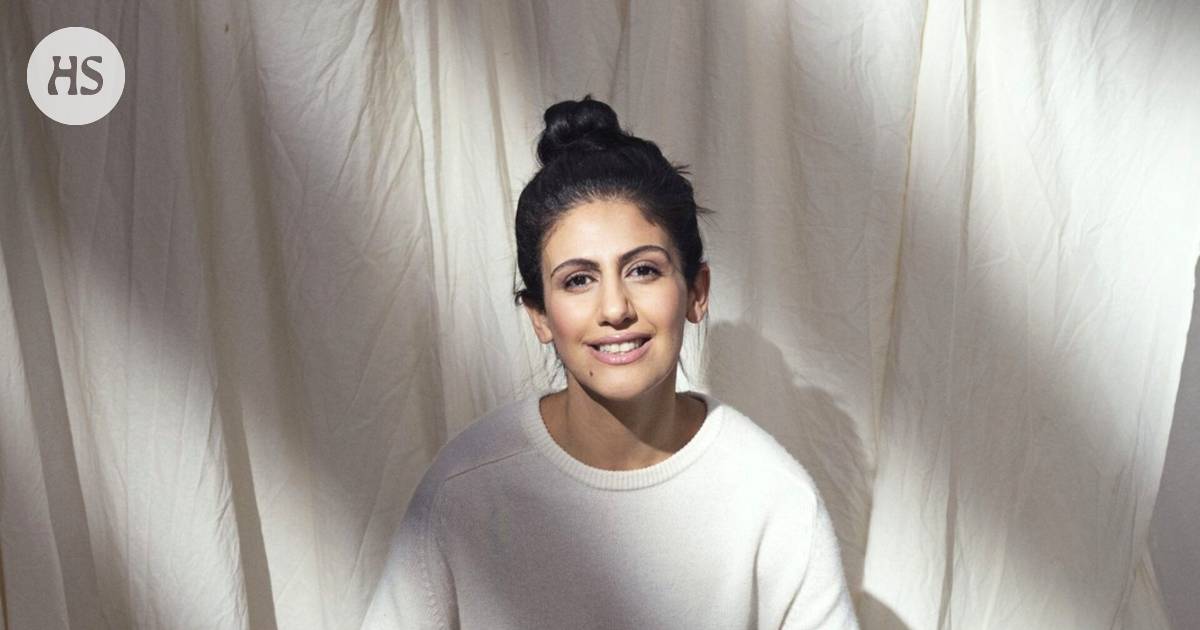Book review|Golnaz Hashemzadeh Bonde’s novel shows that not all mothers know how to take care of their children.
A novel
Golnaz Hashemzadeh Bonde: Natural behavior (Naturliga behavior). Finnish Jaana Nikula. Big Dipper. 168 pp.
How to be a mother if you have never received a mother’s care, even though you have a mother?
What if your own maternal instincts don’t even wake up – like they didn’t wake up with your own mother?
These are questions that Golnaz Hashemzadeh Bonden before the novel’s main character Lily thinks about her own becoming a mother. The name of the novel is Natural behavior – and as the title of the book, it is a paradox. In this story, what should be most natural doesn’t happen.
Why, it is not told – it is not opened, nor is it psychologized. It’s just being shown and stated: not everyone is a mother.
Those who are incapable of mothering betray their children, an adult Lily thinks.
A novel at the beginning, Lily is lying on the operating table and her child is being dug out of her womb. Despite the fact that Lily has never believed that she could become a mother. How could she be a mother? How would she know how to be a mother – without her own experience of caring for a mother.
The child’s father, Marcus, is a man with a straight-forward approach to things, for whom starting a family or the relationships between family members have not caused a major headache.
Things fall apart, as they often do with a person who has been able to trust and rely on adults to a sufficient extent as a child.
For the present alongside it is a story about Lily’s childhood with a single mother of two. With the help of flashbacks, the reader learns how her trust in her mother and in her own possible motherhood has been broken.
A mother who works shifts lives in her own world, and Lily is alone outside of it, both mentally and physically. The closest person is Gunilla who lives upstairs, the only adult person Lily can turn to in times of extreme need.
The author opens up about the mother’s indifference and cruelty in a laconic way. Lily has no choice but to try to manage without adult help or support.
The grown-up Lily thinks, years later, that maybe her mother withdrew to protect herself. She has heard the argument that breastfeeding hormones cause emotional storms, that sometimes the very foundation of motherhood scares the mother off her feet and therefore makes her distance herself from the child.
On top of everything, the mother justifies the distance by saying that Lily doesn’t need her, she can get by without him.
No other explanation for the mother’s behavior is given. However, in the story of the novel, no explanation would be valid or justify the cruelty. The only thing that matters is how rejection feels for little Lily.
Big twist Lily’s world is when she receives a cat as a gift from her mother, which becomes priceless to Lily.
However, just like her own mother, Majsa is also unable to mother after becoming a mother. Majsa abandons her puppies, one after the other they die. Lily sees the tragedy unfolding before her eyes and tries with the energy of a small child to save the Kittens with the help of her neighbor Gunilla. Together they wrap the Kittens in rags and drip milk into their little mouths.
What happens to animals sometimes also happens to people, the author points out. The cat mother is not judged for being dumped, but neither is the human mother in this novel.
Gunilla sees Lily’s situation, but she can’t do much either. At home, he has his own adult son who abuses him.
Also like this little Lily observed the mother-child relationship from her own height, completely powerless. The feeling of powerlessness also creeps into the reader’s body in Golnaz Hashemzadeh Bonde’s cutting sentences.
Lily has no choice but to survive.
A huge number of novels have been written about motherhood in recent years, and the abundance of perspectives they bring out is gratifying. With his touching novel, Hashemzadeh Bonde brings one more painful angle to this discussion.
